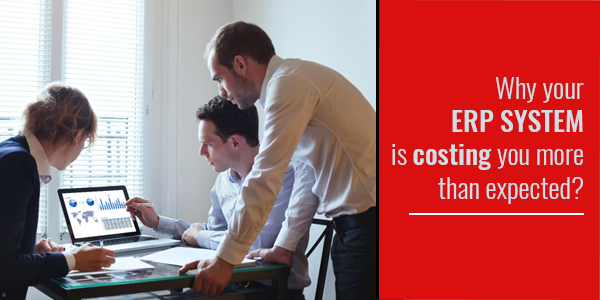Introduction:
In the modern era of education, the integration of technology has become imperative for enhancing efficiency and streamlining administrative tasks. One of the most impactful technological innovations in educational management is the adoption of School ERP (Enterprise Resource Planning) systems. These comprehensive software solutions promise significant benefits, but their implementation can be challenging for educational institutions. In this article, we will discuss the challenges associated with implementing School ERP and provide best practices for educational institutions to overcome them.
Challenges in Implementing School ERP:
- Resistance to Change:
The adoption of new technology often faces resistance from staff members who are comfortable with existing processes. Convincing educators and administrative staff to embrace the change can be a significant challenge. - Data Migration:
Transitioning from traditional record-keeping to a digital system requires the migration of existing data. Ensuring the accuracy and completeness of data during this process can be complex. - Customization:
Educational institutions have unique requirements, and customization of the School ERP system to meet specific needs can be a time-consuming process. Balancing customization with maintaining the integrity of the system can be challenging. - Training and Familiarization:
Proper training of staff and users is crucial for the successful implementation of School ERP. It can be challenging to ensure that all users are comfortable with the new system. - Integration with Existing Systems:
Educational institutions may already have other software systems in place, such as Student Information Systems (SIS) or Learning Management Systems (LMS). Integrating the School ERP with these systems can be complex.
Best Practices for Successful Implementation:
- Engage Stakeholders Early:
Involve key stakeholders, including educators, administrators, and IT personnel, from the outset. Engaging them in the decision-making process and addressing their concerns can help mitigate resistance to change. - Set Clear Objectives:
Define clear objectives for the implementation of the School ERP system. Identify specific goals and outcomes to measure success, such as improved efficiency, reduced administrative workload, or enhanced communication. - Comprehensive Training:
Invest in thorough training for all staff members and users who will interact with the system. Training should include hands-on experience and ongoing support to ensure users are comfortable with the technology. - Data Migration Strategy:
Develop a comprehensive data migration strategy. Ensure that data is accurately transferred from existing systems to the School ERP, and perform rigorous testing to validate the migration process. - Customization with Caution:
While customization is essential to meet unique institutional needs, it should be approached with caution. Over-customization can lead to complexity and hinder system updates. Balance customization with system integrity. - Incremental Rollout:
Consider implementing the ERP for Schools system in stages or modules rather than all at once. This allows for gradual adaptation and minimizes disruption. - User Feedback Loop:
Create a feedback loop for users to provide input and report issues or challenges they encounter. Continuous improvement based on user feedback is crucial for long-term success. - Data Security and Privacy:
Ensure that the School ERP system complies with data security and privacy regulations. Implement robust security measures to protect sensitive information. - Regular System Evaluation:
Continuously evaluate the system’s performance and its alignment with institutional goals. Make necessary adjustments and updates to maximize its effectiveness.
Conclusion:
Implementing School ERP systems can be challenging for educational institutions, but with careful planning and adherence to best practices, it can lead to significant improvements in efficiency, communication, and overall management. Overcoming resistance to change, addressing data migration challenges, and striking the right balance between customization and system integrity are critical factors in the successful implementation of School ERP.
Engaging stakeholders, providing comprehensive training, and creating a feedback loop for users are essential strategies for ensuring a smooth transition. By adopting these best practices, educational institutions can harness the full potential of School ERP systems to streamline administrative tasks and enhance the overall educational experience for students, educators, and administrators alike.
